1. Tiny Home Additions in the Backyard
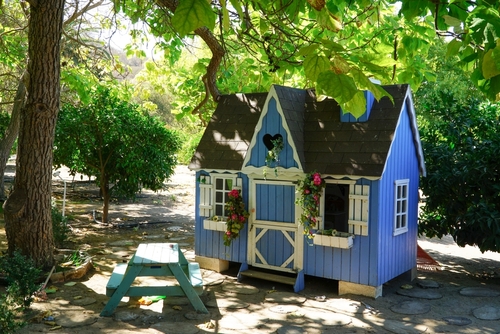
Adding a backyard tiny home or “granny flat” is a growing trend among suburban families. While it seems like a smart way to increase space or income, many homeowners discover zoning laws are stricter than they thought. Some structures have been labeled illegal, forcing owners to remove them entirely. These disputes can lead to fines and expensive legal consultations.
Even if your tiny home is built to code, neighbors sometimes sue over sightlines, property values, or alleged nuisance complaints. HOA rules often complicate the issue further. Many new owners assumed these secondary units were automatically allowed, only to be hit with citations months after moving in. That cozy rental unit can quickly feel like a legal battleground.
2. Open-Concept Everything
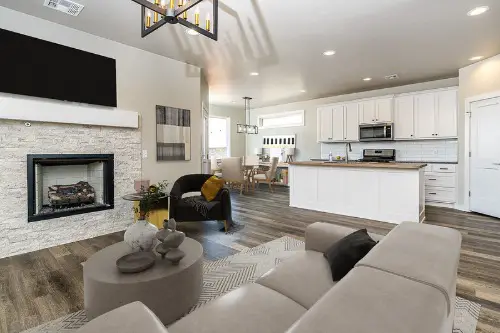
Open-concept layouts have been a darling of suburban design for over a decade. Homebuyers love the airy, modern feel, but the lack of walls can hide structural issues that weren’t obvious during the showing. Some homeowners have faced disputes over load-bearing walls that were altered or removed without permits. When problems arise, legal battles can cost tens of thousands to fix.
Insurance companies and municipal inspectors can also get involved if the changes weren’t properly approved. What seemed like a trendy renovation can quickly turn into a nightmare when it violates building codes. Many buyers have reported issues with floor sagging or ceiling cracks linked to open-concept modifications. That perfect Instagram-worthy layout may not be so perfect in a courtroom.
3. Artificial Turf Installations
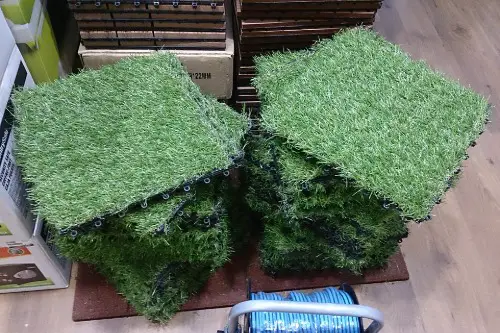
Artificial turf has become a go-to for low-maintenance lawns. It looks perfect year-round, but some municipalities and HOAs have restrictions on its installation. Owners have been fined for drainage issues or for violating local landscaping ordinances. What was intended as a practical upgrade can lead to costly legal letters.
Water runoff is another common problem. Improper installation may violate stormwater regulations, creating headaches for new homeowners. Some buyers report disputes with neighbors claiming the synthetic lawn alters property aesthetics or causes environmental concerns. Suddenly, that Instagram-perfect lawn feels like a trap.
4. Extreme Outdoor Kitchens
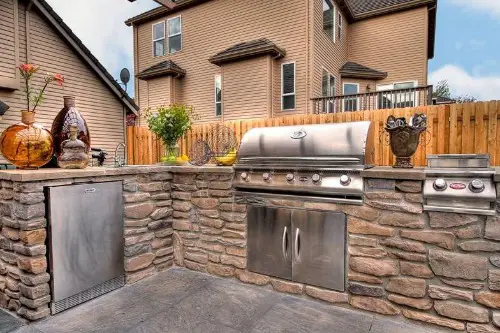
The dream of a backyard kitchen complete with pizza ovens and built-in grills is alluring. But gas lines, electrical hookups, and fire safety codes can quickly turn this dream into a legal quagmire. Some installations were flagged for lacking permits, resulting in fines and mandated demolition. What started as entertaining ambition can drain finances fast.
HOA guidelines also complicate matters. They often have restrictions on outdoor appliances, smoke, or noise levels. Owners who didn’t double-check regulations found themselves negotiating with local inspectors. The fun of weekend barbecues can become weekend court sessions.
5. Overbuilt Decks and Patios
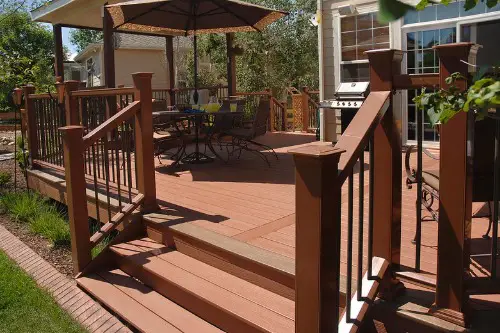
Sprawling decks and oversized patios are hot real estate features, yet they can become headaches if they don’t meet setback or height regulations. Many buyers assume that because the previous owner built it, it’s automatically legal. Unfortunately, municipal inspections sometimes reveal violations years later. Removing or modifying the deck can be a costly and stressful process.
Deck-related disputes with neighbors are also common. Issues often involve blocked views or shared property lines. Some homeowners have been forced to tear down structures they believed were an upgrade. A place meant for relaxation can become the epicenter of legal tension.
6. Solar Panel Disputes
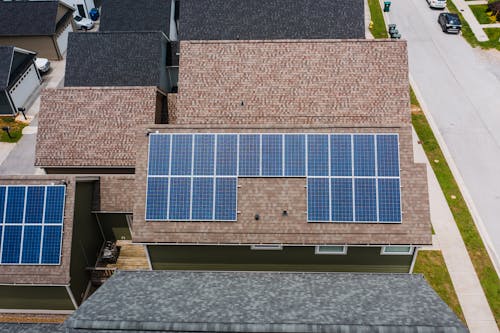
Solar panels are environmentally friendly and reduce energy bills, but they can cause legal headaches. Some HOAs restrict placement, color, or visibility, and failure to comply has led to lawsuits. Other issues arise when solar companies didn’t obtain proper permits. These mistakes can leave new owners financially responsible.
Even if the panels themselves are perfect, neighbors sometimes claim glare, aesthetic disruption, or even roof damage. The installation contracts may also complicate resale if they tie homeowners to long-term leases or maintenance agreements. What seems like a green upgrade can become a red flag for your wallet.
7. Pool Installations Without Proper Permits
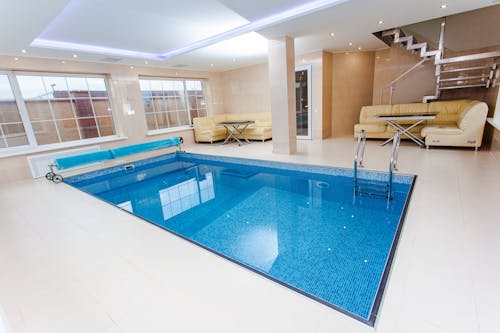
Swimming pools scream luxury, but unpermitted pools are a top source of legal problems for suburban homeowners. Building a pool requires inspections, fencing, and compliance with safety codes. Many new owners inherited pools that were “grandfathered in” but later cited for violations. The costs to bring them up to code can be shocking.
Liability issues are another concern. If the pool isn’t up to local safety standards, homeowners can face lawsuits if accidents occur. Neighbors have sometimes pressured owners to remove pools over flooding or drainage complaints. What starts as a summer paradise can become a year-round headache.
8. Excessive Landscaping or Water Features

Elaborate landscaping with ponds, waterfalls, or oversized fountains can look like a dream, but municipal codes sometimes have limits on water usage or structural safety. Improper permits or overgrown installations have caused fines and mandatory removals. Homeowners often underestimate how regulations apply to decorative features. A beautiful yard can suddenly feel like a minefield of citations.
HOAs are notorious for these disputes as well. Neighbors sometimes complain about noise from waterfalls or visual obstruction from oversized trees and shrubs. Owners are then stuck navigating fines, remediation orders, or litigation. Even serenity can come with legal strings attached.
9. Home Theaters and Soundproofing Additions
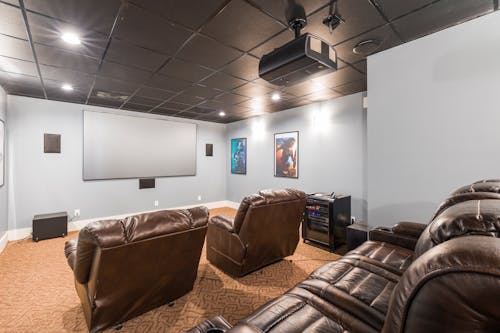
Dedicated home theaters or music rooms are highly sought-after in suburban homes. However, building them often requires structural modifications or added wiring that needs permits. Owners who skip inspections risk violating building codes, especially for fire safety. Those dream movie nights could land you in court instead.
Soundproofing itself can trigger disputes. Neighbors occasionally sue over construction noise or vibrations. HOA regulations may limit windowless rooms or electrical modifications. What felt like a private escape can become a public headache.
10. Luxury Garage Upgrades
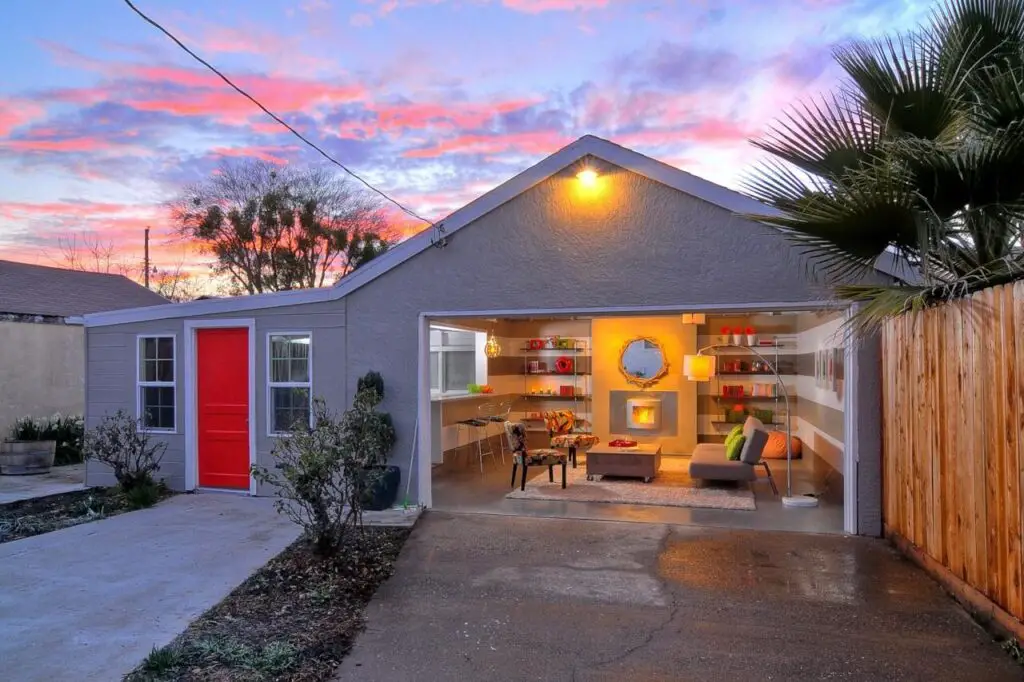
Turning garages into man caves, gyms, or extra bedrooms has skyrocketed in popularity. Many owners neglect to check permits for electrical work, plumbing, or structural changes. Some have been forced to reverse the upgrades at considerable expense. A space designed for convenience can quickly morph into a legal nightmare.
Property tax assessments also come into play. Adding living space without proper permits can trigger reassessments, creating higher taxes. Some neighborhoods have sued for unapproved conversions that affected local zoning compliance. Suddenly, your upgraded garage is more trouble than storage.
11. Roof Decks and Elevated Patios
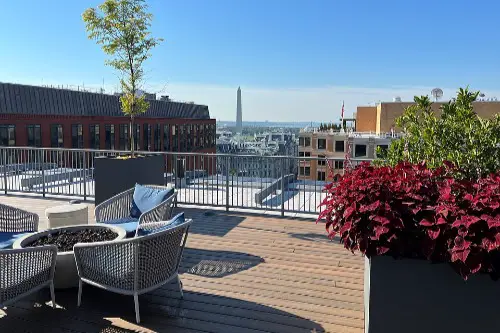
Rooftop decks are the ultimate suburban statement, offering panoramic views and entertainment space. Yet they require strict compliance with building codes, permits, and sometimes neighbor consent. Many homeowners are surprised when cities mandate removal or retroactive inspections. The higher you go, the steeper the legal risk.
Liability is especially important here. Improper railings or structural weaknesses can result in lawsuits. Even aesthetically minor infractions like height limits or sightline violations can trigger disputes. That rooftop dream may come with more drama than the ground floor.
12. Electric Vehicle Charging Stations

Installing a personal EV charging station feels like a forward-thinking upgrade, but it can clash with HOA rules or city codes. Improper wiring or unapproved installations can lead to fines or forced removal. Homeowners sometimes inherit these stations from previous owners, only to find they weren’t properly permitted. What seems like a convenience can quickly become a legal headache.
Utility agreements can complicate matters as well. Sharing circuits with neighbors or overloading panels might violate local energy codes. Some homeowners have even faced disputes over who is responsible for maintenance or damage. That eco-friendly addition can come with an unexpectedly heavy price tag.
13. Fence Fiascos and Property Line Wars
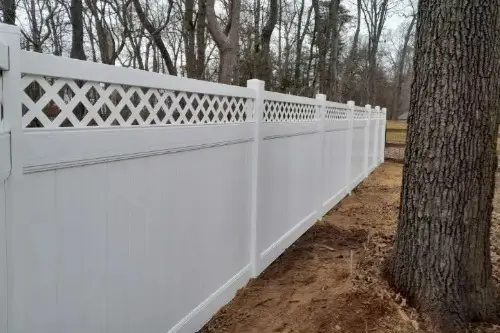
Fencing disputes might seem minor, but they’re among the most common suburban legal headaches. Homeowners often build fences assuming property lines are accurate, only to later discover boundary discrepancies. When surveys reveal encroachments, owners may face demands to tear down or relocate costly installations. What started as a privacy project can spiral into court-ordered removals.
Even “good neighbor” fences can become contentious if styles or materials violate HOA aesthetics. Some municipalities also have height or visibility rules that restrict certain designs. When violations are found, fines accumulate quickly. That white picket fence dream can turn into a bureaucratic and financial nightmare.
14. Airbnb-Style Rentals Gone Wrong

Short-term rentals have exploded in suburban neighborhoods, offering extra income for homeowners. However, many cities and HOAs now regulate or outright ban them. Some owners find themselves facing hefty fines for zoning violations or failing to obtain proper business licenses. What seemed like easy passive income can quickly dissolve into legal chaos.
Neighbors often complain about noise, parking, or increased foot traffic, prompting community disputes. In some cases, HOAs sue homeowners for turning residential properties into “commercial operations.” These conflicts can damage reputations and property values. That side hustle can end up costing far more than it earns.
15. Smart Home Surveillance Overreach

Installing security cameras and smart doorbells has become the norm, but not everyone welcomes being recorded. Homeowners have faced lawsuits from neighbors claiming privacy invasion when cameras capture shared driveways, sidewalks, or yards. Local ordinances sometimes restrict where devices can point or record audio. That sense of safety can bring unexpected scrutiny.
HOAs and condo boards have also started enforcing specific camera placement rules. Disputes often escalate when owners refuse to comply or remove devices. Some cases have even reached civil court over alleged harassment or surveillance abuse. In suburbia, Big Brother might just be your next-door neighbor.
16. Converting Basements into Rental Units
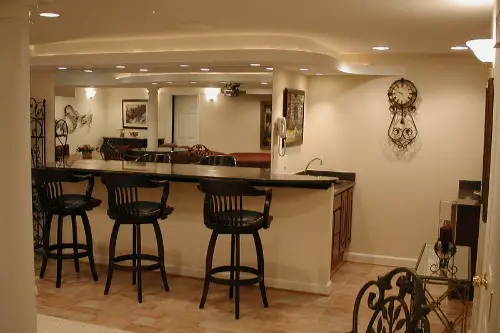
Basement apartments sound like a great way to offset mortgage costs, but zoning laws often prohibit multi-family use in suburban zones. Many homeowners overlook fire egress and ventilation requirements when renovating. Inspectors can issue violations or order full deconstruction of the space. What started as a creative financial solution can end up a costly mistake.
Insurance and liability issues add another layer of risk. Unauthorized rentals can void coverage if accidents occur. Tenants who discover the space is illegal sometimes sue or report the property. The supposed “bonus income” can drain savings instead.
17. Driveway Expansions and Pavement Violations
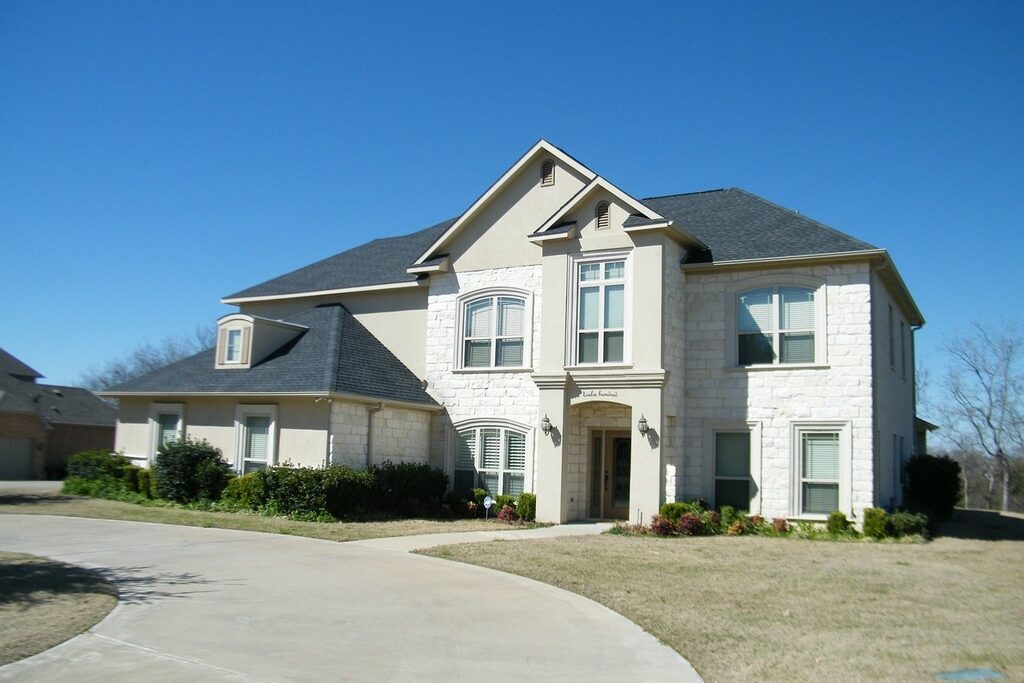
Adding an extra parking space or widening a driveway may seem harmless, but many towns regulate how much of your yard can be paved. Exceeding impervious surface limits can lead to drainage fines or forced removal. Some owners have been cited for disrupting neighborhood stormwater systems. A few extra feet of asphalt can become a major legal misstep.
Neighbors often complain when driveways alter runoff or block sightlines. In HOA communities, even the color or material of new pavement can trigger disputes. Unapproved concrete work can cost thousands to undo. What started as a simple upgrade can erode both property and peace of mind.
18. Backyard Fire Pits and Outdoor Fireplaces
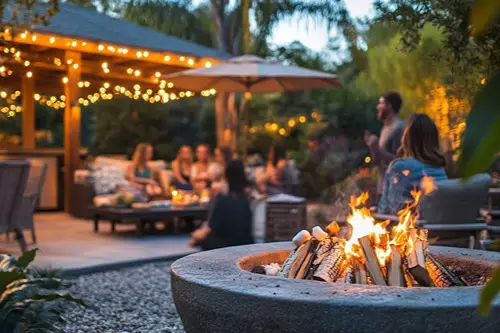
Fire pits and outdoor fireplaces create cozy gathering spots, but local fire codes are often stricter than homeowners expect. Many suburbs restrict wood-burning features due to air quality and safety concerns. Violations can lead to fines, fire department visits, or even insurance issues. That warm glow might end up burning your wallet instead.
Neighbor complaints about smoke or sparks are also common. Some HOAs ban open flames entirely, forcing owners to remove expensive installations. When the wind changes, so can the legal landscape. A peaceful evening by the fire can ignite a full-blown neighborhood dispute.
19. Privacy Hedges and Overgrown Trees
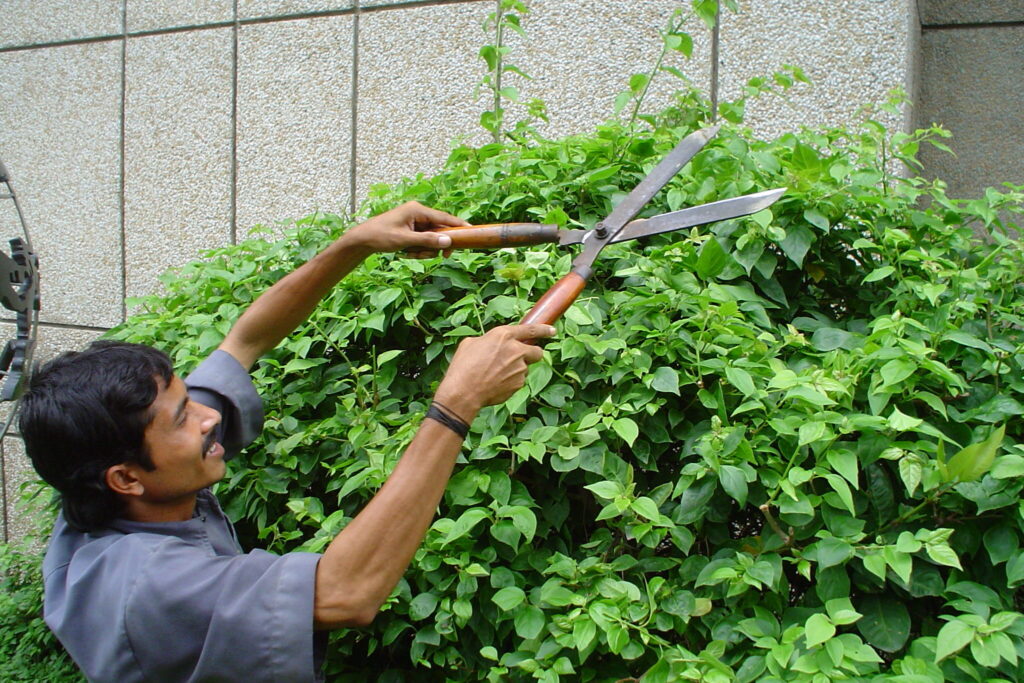
Planting tall hedges or trees for privacy seems harmless until they cross property lines or block sunlight. Disputes often arise over encroaching roots, falling branches, or obstructed views. Some jurisdictions allow neighbors to sue if vegetation violates “right to light” laws. A green screen can quickly turn into a legal gray area.
HOAs also regulate hedge height and maintenance, issuing citations for neglect or overgrowth. Failing to comply with trimming orders can result in daily fines. Even small disagreements can escalate when property values are at stake. Your tranquil backyard oasis can easily sprout into a courtroom battle.
This post 19 Suburban Home Trends Turning Into Legal Nightmares for New Owners was first published on Greenhouse Black.
